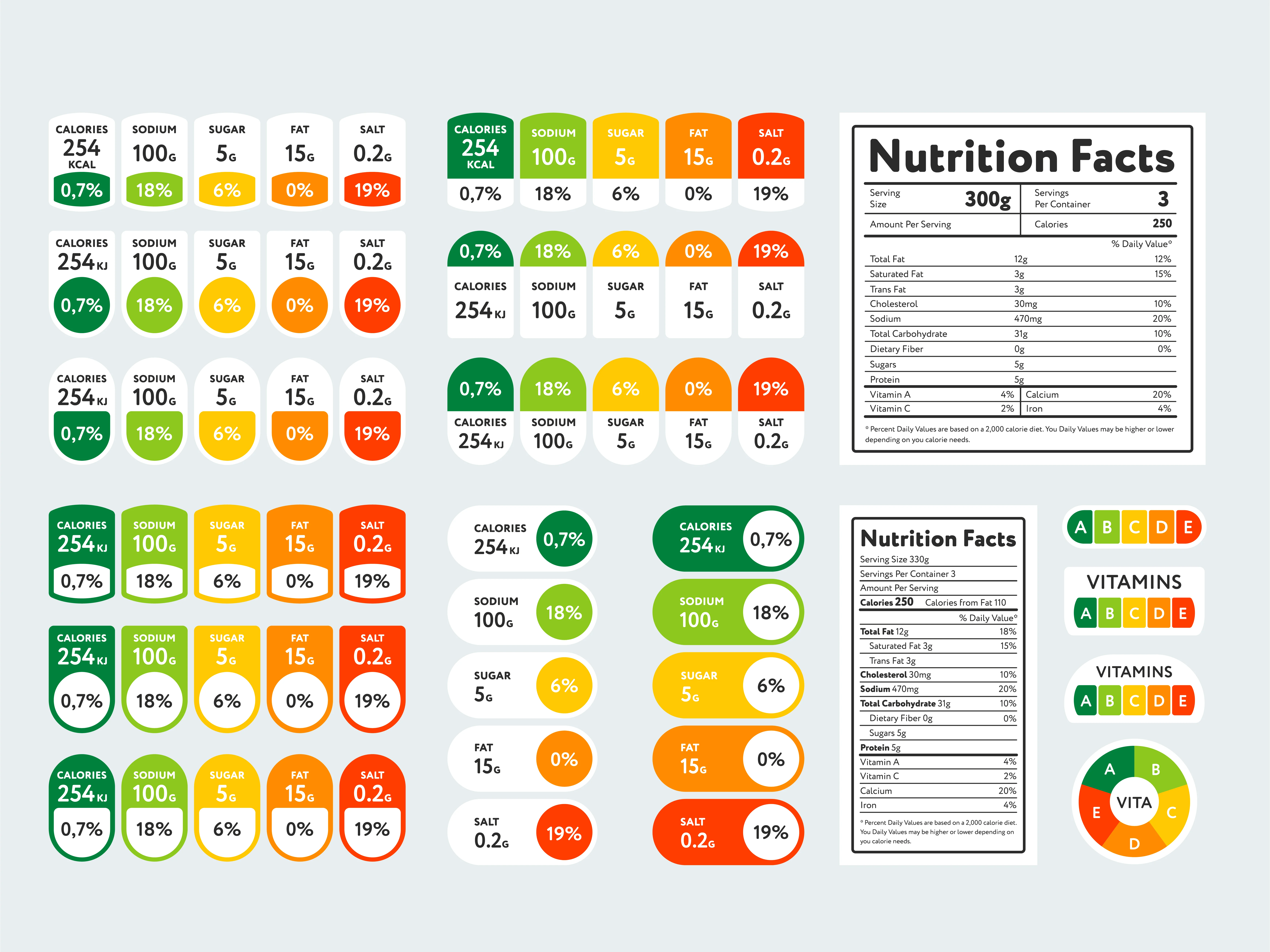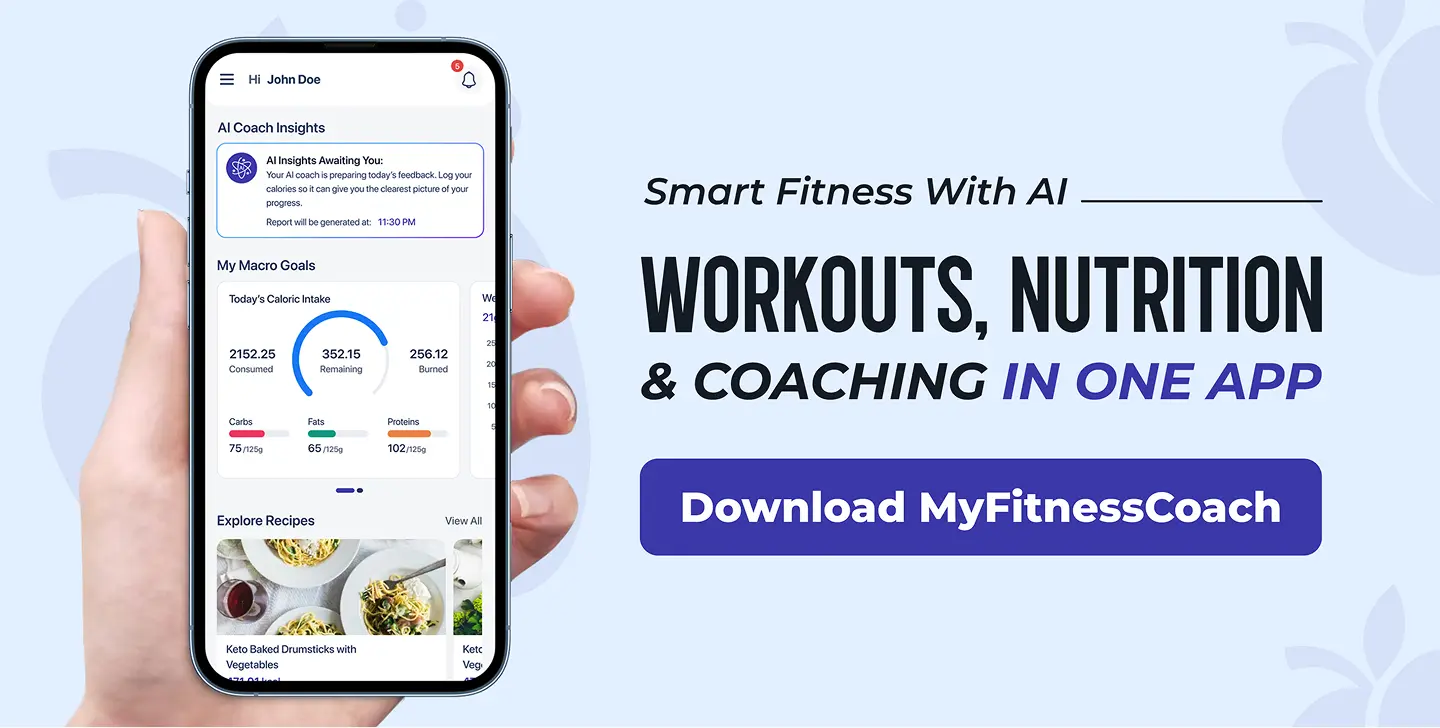How Many Grams of Sugar Per Day: A Guide to Healthier Life
.webp&w=3840&q=75)
MyFitnessCoach
September 8, 2023
Sugar is all around us, from the sweet treats we love to the hidden sugars present in our everyday foods and beverages. While sugar can add a delightful touch to our meals, consuming too much can have detrimental effects on our health. So, just how many grams of sugar should you consume in a day to maintain a balanced and healthy diet? In this simple guide, we will break down the recommended daily sugar intake and explore why it's essential to keep an eye on your sugar consumption.
The Sweet Dilemma

Sugar is undoubtedly delicious and can make our food and drinks more enjoyable. However, the excessive consumption of sugar can lead to various health issues, including:
- Weight Gain: Sugar is calorie-dense, and consuming too much of it can lead to weight gain or obesity. High-sugar diets are often associated with an increased risk of becoming overweight.
- Dental Problems: Sugar can feed harmful bacteria in your mouth, leading to cavities and other dental issues. This is why your dentist might remind you to cut back on sweets.
- Blood Sugar Spikes: Sugary foods can cause rapid spikes and crashes in blood sugar levels, leaving you feeling tired and irritable.
- Increased Risk of Chronic Diseases: High sugar intake has been linked to an increased risk of chronic diseases such as type 2 diabetes, heart disease, and fatty liver disease.
Recommended Daily Sugar Intake
Now that we understand the potential downsides of excess sugar consumption, let's talk about the recommended daily sugar intake. The American Heart Association (AHA) suggests the following guidelines for daily sugar consumption:
- For Men: No more than 36 grams (about 9 teaspoons) of added sugar per day.
- For Women: No more than 25 grams (about 6 teaspoons) of added sugar per day.
- For Children: Ideally, children should consume even less, aiming for no more than 25 grams (about 6 teaspoons) of added sugar per day.
It's important to note that these recommendations refer to added sugars, not the natural sugars found in whole foods like fruits and dairy products. Whole foods provide essential nutrients along with their natural sugars, making them a healthier choice.
Reading Nutrition Labels

To determine how much sugar is added to your food and beverages, it's crucial to read nutrition labels carefully. On these labels, you'll find a section that specifies the amount of sugar in grams. Keep in mind that added sugars can go by various names, so look out for terms like sucrose, high fructose corn syrup, cane sugar, and more.
Sugar Alternatives

Reducing your sugar intake doesn't mean sacrificing sweetness altogether. There are healthier alternatives you can use to satisfy your sweet tooth:
- Stevia: A natural sweetener derived from the leaves of the stevia plant. It's calorie-free and doesn't raise blood sugar levels.
- Honey: While honey is still a source of sugar, it's less processed and contains some beneficial nutrients. Use it in moderation.
- Maple Syrup: Pure maple syrup is a natural sweetener that can be used in moderation for added flavor.
- Fruits: Whole fruits like berries, bananas, and apples can add natural sweetness to your dishes and snacks.
- Cinnamon: This spice can impart a sweet flavor without the need for added sugar. Try it on oatmeal or in your morning coffee.
In a world where sugary temptations are everywhere, it's crucial to be mindful of your daily sugar intake. Excess sugar consumption can lead to a host of health problems, including obesity, dental issues, and an increased risk of chronic diseases. To maintain a balanced and healthy diet, follow the recommended daily sugar intake guidelines provided by organizations like the American Heart Association.
Remember to read nutrition labels, be aware of hidden sugars in common foods, and explore healthier sweetening alternatives when needed. By making conscious choices and reducing your added sugar intake, you can enjoy a sweeter, healthier life.

If you want to learn more about the fitness world, download MyFitnessCoach app right now and dive into the ocean of information about fitness.
Read More Informative Blogs At: MyFitnessCoach.Fit
Frequently Asked Questions
Similar Articles
Stay informed with these similar articles.

MyFitnessCoach
October 18, 2023
What Does Body Goals Mean? A Path to a Healthy Lifestyle
In the world we live in now, lots of people talk about "body goals," which means having a body that's seen as perfect. On social media, in magazines, and on TV, we see lots of pictures of people with what seems like perfect bodies, which makes us feel like we have to look like them. But the real meaning of "body goals" is more than just looking good. It's about taking care of your whole self, not just how you look. In this article, we will discuss what does body goals actually mean and how you can achieve your body goals. Let’s get started:
.webp&w=3840&q=75)
MyFitnessCoach
September 5, 2023
How Much Protein in an Egg | The Nutritional Power
Eggs have long been a breakfast favorite for many, and for good reason. They're not only delicious but also packed with essential nutrients, making them a versatile and nutritious addition to your diet. One of the most common questions about eggs is, "How much protein is in an egg?" In this comprehensive guide, we'll delve into the world of eggs and explore their protein content, nutritional benefits, and how they can contribute to a balanced diet.

MyFitnessCoach
May 18, 2023
Fitness Guide: How Do I Start A Weight Loss Journey
Ready to start on a life-changing weight-loss journey? Congratulations for taking the first step towards being a better and happier version of yourself! Starting off a weight-loss journey may be both satisfying and stressful. With so much information available, having a well-defined plan and trusted assistance in achieving your goals is important. This article will help you start your weight-loss journey and achieve the results you desire.
